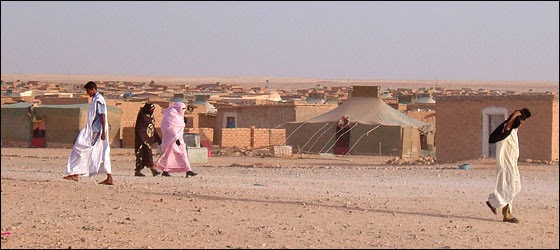A UK court rejected irrevocably the challenge by the Polisario to the association agreement with Morocco which includes the Sahara territory, in a new setback for the Algerian-backed separatist group that should serve as an example to follow for the EU.
The appeal was filed by the UK-based Algerian proxy Western Sahara Campaign (WSC) which speaks for the Polisario in a failed bid to undermine the post-Brexit trade deal between the two kingdoms.
The clear-cut response in favor of the Morocco-UK association agreement confirms that the UK justice system does not view the Polisario as a representative of the Sahara population as it claims to be.
The UK court was also careful not to interfere or pronounce judgement on the conflict over the Sahara territory which is being negotiated within the UN framework.
Its decision to this politically-motivated case also shows the farsightedness of UK judges in preventing other separatists and non-state groups from challenging commercial and diplomatic deals between sovereign states.
Meanwhile, Morocco and the EU brace for a new round of negotiations for the fisheries deal which was subject to legal challenges in the past by groups including WSC.
The European Court of Justice has often shown inconsistency on the matter. It has in 2021 annulled the fisheries deal with Morocco because it covered the Sahara. The decision was appealed by the European Commission.
Morocco’s King Mohammed VI had said that the country will not engage in any economic step that does not cover all its territories including the Sahara, expressing a firm stand that Rabat will not compromise on its territorial integrity and economic sovereignty.
Legal experts have warned of the mingling of the ECJ in international deals signed by the EU. The court’s statement goes as far in its interference as recognizing the Polisario as having the right to speak on behalf of the Sahara population and annulled the agriculture and fisheries deals citing what it described as a lack of consent by the local population.
Even in legal terms, the Sahara cannot be defined as an “occupied territory” because it does not fulfill the criteria, stipulated by Article 42 of The Hague Convention: Presence of an enemy state on the territory, exclusion of the legitimate authority and substitution by an occupying authority. In fact, when Morocco retrieved the area from Spain in 1975 in accordance with the Madrid Agreement, there was no Sahrawi State on this territory, which was part of the Moroccan Kingdom prior to the colonization.
Moreover, the legal opinion by the Under-Secretary-General for Legal Affairs and the Legal Counsel of the United Nations Hans Corell of 2002 recognizes Morocco as an ‘administrative power’ with the right to exploit natural resources of the Sahara.
As a new court that struggles to coexist within a supra-national EU entity, the ECJ should take lessons from the independent UK’s justice system and its centuries-old traditions.



